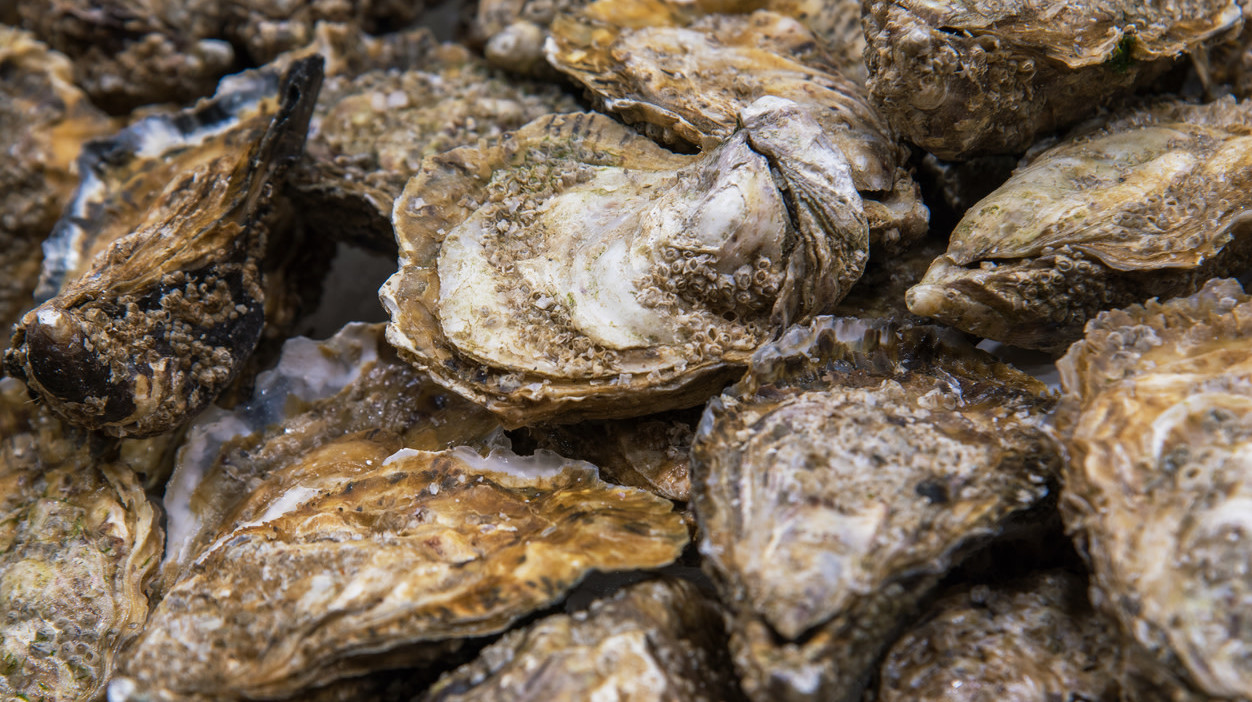The Oyster "R" Rule Is More Than 4,000 Years Old, Archaeologists Discover
The oyster "r" rule is simple, and it goes like this: You should never eat raw oysters in a month without the letter "r" in it. That means no oysters in the summertime, from May through August. This is an old and venerable rule, though archaeologists from the Florida Museum of Natural History only recently found out exactly how old: 4,000 years.
How did they do this? By measuring parasitic snails, of course! Those archaeologists are wily. They discovered, phys.org tells us, that little snails called impressed odostomes were common parasites in oysters on St. Catherine's Island off the Georgia coast. The life cycle of an impressed odostome was exactly 12 months, so it's possible to tell when an oyster was harvested by the length of the snail. The ancient humans who lived on St. Catherine's Island were courteous enough to leave large rings of oyster shells lying around for posterity. And lo, it turns out that 4,300 years ago people weren't eating oysters in the summertime, either. It's possible they also left the island during that time. The archaeologists still aren't sure why they made those giant shell rings in the first place, but they've turned out to be helpful.
"It's important to look at how oysters have lived in their environment over time, especially because they are on the decline worldwide," said Nicole Cannarozzi, one of the researchers and the lead author of the study that appeared in PLOS. "This type of data can give us good information about their ecology, how other organisms interact with them, the health of oyster populations and, on a grander scale, the health of coastal ecosystems."
The oyster "r" rule, by the way, has become passé. Thanks to advances in refrigeration and aquaculture, we no longer have to worry about oysters becoming a breeding ground for bacteria. It's also been discovered that summer oysters are smaller than winter oysters only because of their breeding cycle, but it doesn't interfere with their taste in the slightest.
